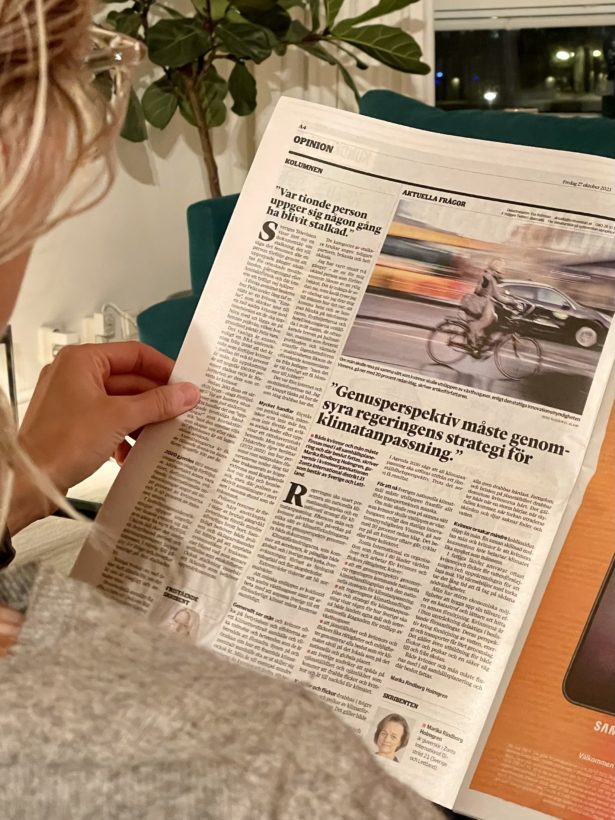
2023-10-27
Zonta Says NOW in Sydsvenskan
Zonta International District 21 can be seen on the debate page in Sydsvenskan today. Feel free to go in and read the debate article in Sydsvenskan via this link.
The government will soon present its national climate action plan and a national strategy for climate adaptation. Since men and women affect and are affected in different ways by climate change, a gender perspective must permeate both documents.
Climate change, which will accelerate, is tangible both globally and in Sweden with droughts, floods, loss of biodiversity and more forest fires. Extreme weather risks becoming normal weather.
Reducing the emissions of carbon dioxide and other greenhouse gases and working to adapt Sweden to a changing climate must be handled at the same time.
In general, men and women see the importance and effects of a climate-neutral society differently and which patterns and behaviors they are prepared to change. The view of and desire for what a future climate-neutral society should look like also differs. For example, men are less inclined than women to change their behavior and often prefer technical solutions instead of system solutions. According to the Paris Agreement, climate work must take human rights into account. Gender equality must be a standing point at the annual party meetings. In Agenda 2030 it is said that all climate adaptation must be carried out from a gender equality perspective. Despite that, we see few results.
In order to reach Sweden's national climate goals, emissions from the transport sector above all must decrease.
If men were to travel in the same way as women, emissions of greenhouse gases would, according to the state innovation agency Vinnova, drop by 20 percent already today. This is because women more often walk, cycle or travel by public transport.
Zonta International, an organization that is present in 60 countries worldwide and works for the rights of women and girls, demands:
- that a gender perspective permeates the government's upcoming national climate action plan and the national strategy for climate adaptation.
- that the government's climate action plan and strategy for climate adaptation show the way for how Sweden is to achieve both the country's own goals and international commitments for greenhouse gas emissions.
- that gender equality and women's and girls' equal rights and opportunities pervade all decisions concerning the climate both locally and nationally and globally.
- that Sweden avoids diluting inequality and inequality that will affect girls and women and is detrimental to the climate.
Women and girls are affected to a greater extent than men and boys by the effects of climate change. This applies in both rich and poor countries.
The paradox is that women and girls in poor parts of the world release the least amount of carbon dioxide into the atmosphere of all but are hit the hardest. Poverty and the lack of equality also hit women hard. This applies both when a storm rages, when torrential rains come, when the drought wipes out the harvest and animals lack feed and water.
Women cause less carbon dioxide emissions than men. Another difference between men and women is that women's consumption does not burden the climate as much as men's.
In poor countries, women and girls are usually responsible for the water supply and heating for cooking. During heat waves with drought, it takes a long time to obtain such necessities.
Men have greater financial opportunities to rebuild their existence after a disaster and find another livelihood more easily. Women are to a small extent involved in decision-making assemblies. Their perspective regarding the supply of water, energy and transport has little impact. This also applies to education for both girls and boys and a safe route to and from school.
Both women and men must be included in all social planning and where decisions are made.
Marika Rindborg Holmgren, governor of Zonta International District 21


